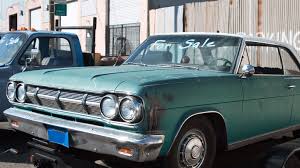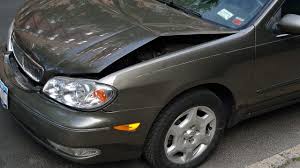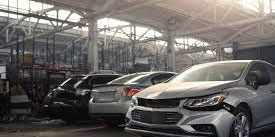In line with the requirements of the state and the DMV, insurance companies are the ones that commonly classify a vehicle as having Salvage insurance and title status. Suppose an automobile suffers severe enough damage due to an accident, theft, flood, fire, or other dangers. In that case, it may be sold as a salvage vehicle once the insurance company declares it a complete loss.
Following the settlement of a complete loss claim with the policyholder, an insurance company may be able to secure a salvage title. If the owner retains the vehicle after it has been declared a complete loss, they may be eligible for a salvage title. On the other hand, a car that has not been damaged but has been stolen might get a salvage title in certain circumstances. The phrase "salvage title" has a variety of meanings depending on the state in which it is used. For instance, in the Minnesota state, salvage titles are only available for the following:
- Vehicles that are no more than six years old
- A vehicle valued at least $9,000 before it was damaged
- A motor vehicle having a maximum gross towing capacity of more than 26,000 pounds
However, in most cases, when an automobile has been declared a salvage vehicle, it is prohibited from being registered, given a title, driven on any public or state highways, or parked on any of those roads until it has been repaired and inspected. As a result, it is normally impossible to insure it until it has been fixed and has successfully passed inspection.
Putting a Salvage Vehicle Back On the Road
You may be possible to obtain an upgrade to the car's salvage title if you want to sell a vehicle with a salvage title or bring it back onto public roads after having it repaired. Following the completion of necessary repairs and the successful completion of a salvage and safety inspection, the title may be converted to a status such as:
- Rebuilt or rebuilt salvage
- Operable salvage title
- Restored salvage
- Previously salvaged
You may be able to have the automobile re-titled and insured after it meets the standards to be considered a "rebuilt" vehicle that shows it has been fixed, inspected, and meets the requirements set out by the state for operation on public roads. On the other hand, it is quite possible that a sticker or some other notation indicating the vehicle's salvage status will permanently applied to the record of the automobile.

How Does Salvage Title Insurance Work?
Many insurance companies will not insure a vehicle previously declared a total loss or salvage, particularly regarding physical damage coverage. Therefore, it may be challenging to get auto insurance for a vehicle that has a rebuilt title. Any vehicle that has been rebuilt or restored from a salvage lot will carry the stigma of having had its value reduced because it had previously been declared a total loss. Furthermore, even a vehicle that appears to be in good cosmetic condition may have problems with its onboard computer or other electronic components.
Josh Damico shared his thoughts on the topic, stating that "insurance providers typically see salvage vehicles as unfavorable since they are unable to assign the necessary risk to the vehicle." Jerry is an app that provides a streamlined service to compare and purchase vehicle insurance, and Damico serves as the company's vice president of insurance operations. Damico said that most carriers are unwilling to accept the risk since the vehicle's value might fluctuate, and they do not want to lose money.
Even Kelley Blue Book (KBB) acknowledges that a salvaged or rebuilt title has a lasting detrimental influence on the value of the vehicle, often ranging from 20% to 40% of the vehicle's original worth. However, KBB recommends that customers get a private appraisal of a salvaged car to understand its actual worth better.
What Kinds of Things Are Covered by Salvage Title Insurance?

- Liability: covers the costs of repairing the harm you cause to another person's property, vehicle, or person.
- Drivers without insurance or inadequate coverage: Pays for your injuries caused by an uninsured or underinsured motorist.
- Protection from medical expenses and liability for personal injuries: Your accident-related medical expenses are covered, irrespective of who was to blame for the accident.




